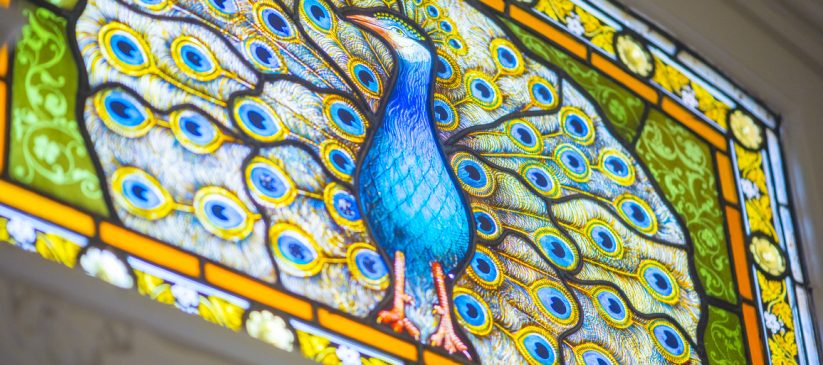Archival Heroism: How Digital Access to Archives Saved my PhD during Lockdown

Written by Christopher Adams, a LAHP-funded PhD candidate at the Institute of English Studies, School of Advanced Study, University of London. He posts about his research into queer publishing history on Instagram @queer_books
When the COVID-19 pandemic struck, I thought I would have to place my PhD research on hold. The stakes for me were high: only a few months before in October 2019 I had upended my life and moved cities in order to be within walking distance of the University of Reading Special Collections, where much of my research would take place. But in March, the Special Collections — like other archives and libraries throughout the U.K. — shut.
For me, the closure of the Special Collections archive came as a significant blow: the UoR archives contain Britain’s most extensive record of British publishing activity and are essential to my research. My project looks at how postwar British publishers selected, edited, marketed, and sold novels featuring queer characters or story-lines in an era in which homosexuality was illegal. Access to the publishers’ business files in the archive is essential for determining how firms negotiated threats of obscenity prosecutions, dealt with printers who refused to print books with queer content, or considered how to market novels through queer networks. Even in only 10 months of research, I have uncovered a surprising amount of material — but this has only been possible through first-hand access to the archive. With the closure of the archive, I was at a loss for how to carry on.
I first encountered the University of Reading Special Collections during the week-long ‘Using Publishers’ Archives’ course organised by the London Rare Books School in the summer of 2019. The highlight of the course was the two days we spent in the UoR collections, examining publishers’ files, letterbooks, business ledgers, printing records, and advertising books from the late 1700s up to the 1980s. The collections are rich, extensive, and magnificent — and the Special Collections team were generous with their time and expertise. My fellow students and I had the opportunity to handle material (properly supervised, of course) in order to understand how the business of British publishing operated. Examining the collections convinced me that pursuing a PhD in publishing history would be an intellectually rewarding and worthwhile experience.
Though my PhD is through the Institute of English Studies (School of Advanced Study, University of London), I determined that being close to the archive would be essential to my research plans. My partner and I left London and moved to Reading. Prior to lockdown, I could walk 10 minutes down the road and spend the day looking through material in the archive. I was impressed with how welcoming and helpful the staff were in providing materials and suggesting avenues for research.
So when the archive closed, I thought I would have to pause my PhD. Without access to archival material, I simply could not carry out my project. But then the archive team offered to continue to provide access to files — digitally.
I had been — I must admit — wary of working with digital surrogates. For me one of the great pleasures of archival research is the sensory experience that accompanies handling original material. The smell of old files, the crinkle of delicate paper — they attach what I am studying to a physical reality and, on a more practical level, help me to retain information. They also help me to feel connected to the people I am studying: the publishers, the authors, the sales clerks, the book jacket designers — all the people involved in the business of publishing. But the realities of the situation meant that digital scans were the only way in which I could continue my research.
In a true act of archival heroism, the team scanned many documents for me, which allowed me to write an entire chapter of my PhD during lockdown. The material itself — the publishing firm Putnam’s business records related to the groundbreaking queer novels The Plaster Fabric (1957) and The Youngest Director (1961) by Martyn Goff — was some of the richest I had yet encountered in the archive. I was able to write in detail how Putnam was at first wary of taking on Goff’s work when no other publisher would touch it, and then to its surprise discover a large and profitable network of queer book clubs through which it sold vast numbers of copies. While historians of queer publishing such as David K. Johnson have traced these sorts of networks in the United States, evidence of this kind of activity in the U.K. has never before been uncovered.
I am exceptionally grateful to the UoR Special Collections staff for facilitating access to archival material, both before and especially during lockdown. Digital scans saved my project — though I am, of course, eager to hear of the conversations Special Collections is having as it considers how to provide in-person access in a socially distanced and responsible way.
The University of Reading Special Collections reading room reopened on September 8th 2020. You can read more about our updated reading room guidance, and how to book to visit our collections on our website.